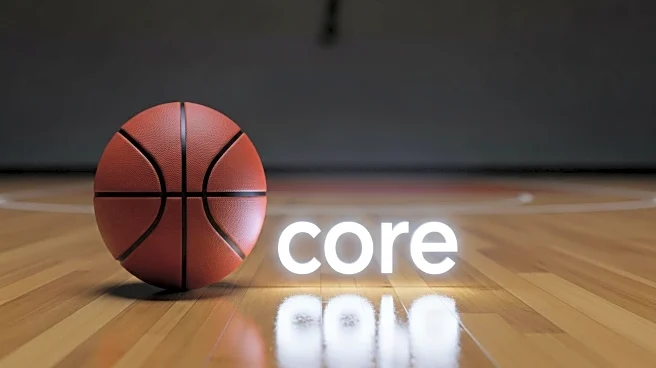What is the story about?
What's Happening?
Sabrina Ionescu, a key player for the New York Liberty, is facing the possibility of being 'cored' by her team following their playoff exit. The core designation in the WNBA allows a team to retain sole negotiation rights with a player, enabling them to sign the player at a supermax salary. This designation can be applied twice to a player, lasting the duration of their contract. The Liberty, having used their core designation on Breanna Stewart previously, may now consider applying it to Ionescu. This move would ensure that Ionescu remains with the Liberty, but it also limits her control over her career decisions. Players have expressed concerns over this rule, with some opting for one-year contracts to expedite the expiration of the core designation.
Why It's Important?
The core designation rule in the WNBA has significant implications for player autonomy and team strategy. For players like Ionescu, being cored can restrict their ability to negotiate freely with other teams, impacting their career trajectory and financial opportunities. This rule is a point of contention in the ongoing discussions surrounding the WNBA's Collective Bargaining Agreement (CBA). The potential coring of Ionescu highlights the broader debate over player rights and team control in professional sports. Teams benefit from retaining star players, but players may seek more flexibility and control over their contracts.
What's Next?
As the WNBA's Collective Bargaining Agreement negotiations continue, players may push for changes to the core designation rule. Ionescu, if cored, might choose to sign short-term contracts to navigate the limitations imposed by the rule. The Liberty's decision on whether to core Ionescu will be closely watched, as it could influence other teams' strategies and players' contract decisions. The outcome of the CBA negotiations will be crucial in determining the future of player-team dynamics in the league.
Beyond the Headlines
The core designation rule raises ethical questions about player autonomy and the balance of power between athletes and teams. It reflects broader issues in professional sports regarding contract negotiations and player rights. The ongoing CBA discussions may lead to significant changes in how players are managed and compensated, potentially setting precedents for other sports leagues.















